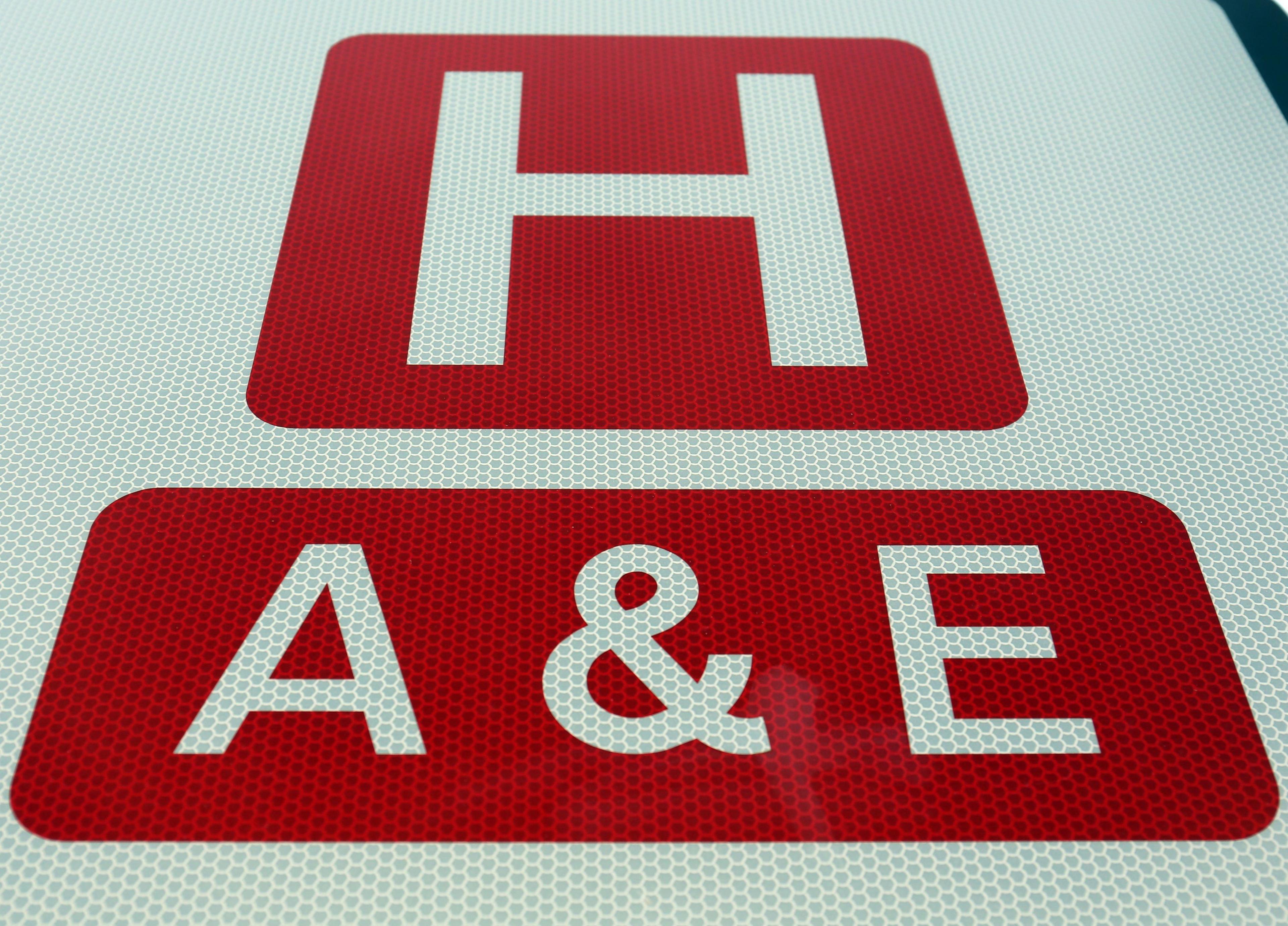A&E patients must be seen in an hour, NHS told

Priorities have been set for health boards to try and improve waits at emergency departments
- Published
Patients in A&E should be seen by "clinical decision-makers" within an hour of arrival, health boards in Wales have been told.
New expectations have been set out by the Welsh government to reduce waits in emergency departments.
They set out a "zero tolerance" for people spending more than 12 hours in a department.
Most recent figures showed the average wait in A&E was two hours 44 minutes, but 9,939 patients waited more than 12 hours.
Huge numbers of A&E waits 'not counted for a decade'
- Published16 October 2023
Welsh hospital wait times improve for second month
- Published22 February 2024
NHS Wales target missed as 30,000 wait two years
- Published18 May 2023
However for the fifth successive month Wales has performed better than A&Es in England against the four-hour target. A total of 58% of patients were seen in that time in Wales, and 55% in England.
Health boards have been asked to evaluate their emergency department facilities and staffing to ensure they meet demands.
The "quality statement" also includes a greater focus on "exit block and hospital flow" to reduce crowding.
Delays in discharging patients who are medically well enough to leave hospital have led to a lack of flow through the hospital, often causing long waits in A&E and queues of ambulances.
Health Minister Eluned Morgan said while improvements had already been made "we know there’s much more to do to improve the standard and timeliness of care people receive when they go to emergency departments".
"The public want clear and frequent communication, to feel comfortable and warm and to be treated quickly but sensitively.
"And we know the dedicated and skilled staff working in these busy departments want a focus on timely flow of patients from departments into hospital wards, and access to better quality data to drive improvements to patient care."

Health Minister Eluned Morgan says while improvements have been made, there is more to do
A national task group has been established to review emergency department measures, which will consider whether there are better performance measures.
The Royal College of Emergency Medicine (RCEM) has criticised the data currently published, as it claimed it does not accurately reflect the full wait experienced by patients.
It has also repeated its call for changes to the way data is recorded and published.
In Wales clinical exceptions – or breach exemptions – are applied, meaning the clock can be stopped if a clinician decides the emergency department is the safest place for a person.
The patient is still included in data, but the complete time spent in the department may not.
A recent report by the Office for National Statistics analysed waiting times across parts of the UK and found figures in Wales were "broadly comparable" with those in England.
The Welsh government said improvements had already "helped our major emergency departments outperform their counterparts in England in 14 of the last 17 months, in relation to the four-hour target."
Dr Katja Empson, the vice-chair of RCEM in Wales, welcomed the national task group to look at how performance is measured, and said "metrics should be meaningful and robust".
"We look forward to joining the group, and contributing to its work, and will continue to recommend that Wales’ clinical exemptions policy is abolished," she said.
Conservative health spokesman Russell George said that "these expectations from the Labour government ring hollow without the funding to meet them".
Mr George added: “Years of Labour and Plaid diverting money away from our health service to their vanity projects have led to the long waits Welsh patients are having to endure.
“The Welsh Conservatives want to see the full Barnett uplift for health spent on our Welsh NHS to fully resource it and our workforce boosting plan enacted to improve waiting times for patients.”
Related topics
- Published15 March 2024

- Published15 August 2023
